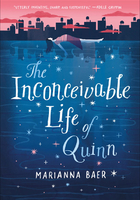Bedii Usta's Children
… sighs rising and trembling through the timeless air.
—Dante, The Inferno, Canto IV
Ever since we opened our column to the fearless examination of the things we human beings really care about, no matter who they are or where they're from, we have been inundated with letters. While it is touching to see how eager our readers are to speak openly about their own lives, and certainly they have had to wait a long time for this privilege, I regret to inform you that some of them are so impatient that they don't stop to write down their experiences. Instead, they come straight to the office, where they sit huffing and puffing until they've given us a full and unexpurgated account. Some people, seeing that we don't quite believe what they're telling us, sensing that we meet their more bizarre details with disbelief, feel compelled to draw us away from our desks to prove their stories, to prove their very lives, to take us into the muddy, mysterious darkness that our society has so long ignored and that no one has yet dared to describe in print. This, then, is how we first came across the fearsome secret history of Turkey's mannequins.
Aside from that dung-stinking piece of folkloric kitsch, the scarecrow, our society was for centuries entirely unacquainted with the art of making mannequins. Our first undisputed master, the patron saint, if you will, of Turkey's mannequins, was Bedii Usta, ordered by Abdülhamit to make mannequins for our first Naval Museum under the guidance of Prince Osman Celalettin. It was this same Bedii Usta to whom we owe the secret history of the mannequin. It is said that the first visitors to the museum were most impressed to see the valiant youths who had sunk so many a Spanish and Italian vessel in the Mediterranean three centuries earlier standing in their full glory among the royal launches and the galleons, their handlebar mustaches still bristling. Bedii Usta created these first marvels from wood, plaster, wax, the skins of does, camels, and sheep, and hair plucked from human heads and beards. Upon first setting eyes on these magnificent creations, the narrow-minded Sheikh al-Islam went into a fury. To replicate God's creations so perfectly was to compete with the Almighty, so the mannequins were swiftly removed from view and banisters were erected between the galleons.
This is just one of thousands of examples of the prohibition fever that has raged throughout our nation's long journey westward, but it did not succeed in damping the "fever for creation" that still burned in Bedii Usta's heart. While he continued to make more mannequins in the secrecy of his home, he pleaded with the officials to allow his "children" to be returned to the museum or to find some other place where they might be displayed. No one budged, but when he gave up on the state and the authorities who spoke in its name, he did not give up on his new art. Instead, he built himself a new atelier in his basement, and it was there that he continued making his mannequins. Later, perhaps fearing that his Muslim neighbors might denounce him for "sorcery, perversion, and heresy," and also because there were by now more mannequins than could possibly fit into a humble Muslim home, he left Old Istanbul and set up house on the European side of the city, in Galata.
This strange house on Kuledibi was first described to me by a reader, who then took me to see it for myself. It was here that Bedii Usta continued to practice his exacting craft with passion and conviction, and as he worked he passed the secrets of his self-acquired art on to his son. Twenty arduous years later, in the great westernizing wave of the early years of the Republic, when gentlemen threw aside their fezzes to don panama hats and ladies discarded their scarves in favor of low-slung high heels, mannequins began to appear in the display windows of the finest clothing stores along Beyo?lu Avenue. These, however, were brought in from abroad, and when he first set eyes on these foreign mannequins, Bedii Usta was sure that the day he'd awaited for so long was upon him; ecstatic, he flew out of his atelier into the street. But on Beyo?lu Avenue, with its glittering cafés and clubs and its crowds of ostentatious shoppers, he met with a new disillusion that was to send him reeling back into the darkness of his basement atelier, there to stay until the day he died.
He took samples of his work to all the grand department stores, but (like every window dresser who visited his basement atelier and every purveyor of suits, dresses, skirts, stockings, trousers, and hats) they all turned him down. For his mannequins did not look like the European models to which we were meant to aspire; they looked like us. "Consider the customer," one shopkeeper advised him. "He's not going to want a coat he sees worn by someone who looks like the swarthy, bowlegged, mustachioed countrymen he sees ten thousand times a day in our city's streets. He wants a coat worn by a new beautiful creature from a distant unknown land, so he can convince himself that he, too, can change, become someone new, just by putting on this coat." One window dresser who was well versed in this game was good enough to confess, after admiring Bedii Usta's mastery, that he thought it a great shame he could not earn his keep by using "these real Turks, these real fellow citizens" in his shop windows; the reason, he said, was that Turks no longer wanted to be Turks, they wanted to be something else altogether. This was why they'd gone along with the "dress revolution," shaved their beards, reformed their language and their alphabet. Another, less garrulous, shopkeeper explained that his customers didn't buy dresses but dreams. What brought them into his store was the dream of becoming "the others" who'd worn that dress.
Bedii Usta did try to make mannequins that accommodated this dream. However, he was only too aware he could never compete with the imported European mannequins with their strange and everchanging poses and their toothpaste smiles. So before long, he went back to realizing his own dreams, his real dreams, in his own dark atelier. He spent the last fifteen years of his life giving these terrible homespun images the semblance of flesh and blood, producing more than a hundred and fifty new mannequins, each one a work of art. Bedii Usta's son, who came to see me at the newspaper and then took me to see his father's basement atelier for myself, told me, as we inspected the mannequins one by one, that "the special thing that makes us what we are" was buried inside these strange and dusty creatures.
We had come by way of a muddy alley off Kuledibi, along a filthy pavement, down a steep flight of stairs, and now here we were, in the cellar of a dark cold house. All around us were mannequins, squirming and fidgeting, hoping perhaps that by moving they might come to life. Gazing at us through the shadows of the half-lit cellar were hundreds of eyes, hundreds of faces, staring at us and at each other. Some were seated, some were talking, some were eating, some laughing, a few were at prayer. Some seemed to defy the outside world by their very existence—an existence that seemed to me at the time to be unbearable. This much was crystal clear: These mannequins were possessed of a life force stronger than anything you might see in the crowds swarming across the Galata Bridge, let alone in the display windows of Beyo?lu or Mahmutpa?a. The very complexions of this crowd of squirming, breathing mannequins were lit up with life. I was entranced. I remember approaching one mannequin (a fellow citizen, an old man buried in his troubles) with a passionate trepidation, wanting to tap into the life I sensed pulsating inside him, wanting to become part of this other world and know its secrets. But when I touched him, his thick skin was as cold and terrifying as the room itself.
"My father always said we should pay close attention to the gestures that make us who we are," the son explained, pointing proudly at the mannequins. At the end of their long and tiring workdays, he and his father would climb from their dark Kuledibi cellar to return to the earth's surface, and together they would go to Taksim, to one of those pimp coffeehouses; here they would sit down, order themselves some tea, and watch the crowds streaming by, paying special attention to gestures. In those years his father held that a nation could change its way of life, its history, its technology, its art, literature, and culture, but it would never have a real chance to change its gestures. While he was telling me this, the son showed me how a cabdriver might light a cigarette, and how and why a Beyo?lu gangster held his arms away from the body when he was walking sideways like a crab, and then he pointed to the chin of a chickpea seller's apprentice—the boy was laughing with his mouth wide open, just like the rest of us. He also explained the terror in the downcast eyes of a woman as she walked alone down the avenue with a string bag in her hands, and he explained why it was that our citizens kept their eyes on the ground when they walked through cities and their eyes on the sky when they walked through the country…. And he kept bringing my attention back to the mannequins that still watched over us as they awaited the hour of eternity, the hour that would bring them to life—their gestures, the thing in their pose that came "from us"—over and over, I know not how many times. Above all it was clear that these magnificent creations were perfectly equipped to model the finest fashions.
But still there was something about these mannequins, these sorry creations, that broke your heart and made you want to flee back to the daylight world above. There was something wrong about them—how can I put it?—something dark, painful, irksome, even terrifying! "In later years," the son explained, "my father stopped studying ordinary gestures," and this was when I realized what this terrible thing was. For these gestures I've been trying to describe—the way we Turks laughed, wiped our noses, walked, looked askance, washed our hands, opened bottles—over time, they began to lose their innocence, or so it seemed to this father and his son. While they were sitting in their coffeehouses, watching men and women who'd never had anyone to imitate except themselves and each other, Bedii Usta and his son could not at first figure out whom these people were imitating, whom they had taken as their models for change. Their stock of little everyday gestures was "life's great treasure," but slowly and inexorably, as if in obedience to a secret and invisible master, they were changing, disappearing, and a whole new set of gestures was taking their place. It was while the father and his son were working together on a line of child mannequins that they finally got to the bottom of the mystery. The son cried out, "It's because of those damn films!"
Yes, it was because of those damn films—brought in from the West canister by canister to play in our theaters for hours on end—that the gestures our people used in the street began to lose their innocence. They were discarding their old ways, faster than the eye could see; they'd embraced a whole new set of gestures—each and every thing they did was an imitation. Let us not dwell too long on the examples the son gave me to justify his father's anger about these fake, new, and ultimately meaningless ways of moving; suffice it to say that he covered all the new laughs our people had first seen on celluloid, not to mention the way they opened windows, kicked doors, held tea glasses, and put on their coats; these anonymous learned gestures, these new nods, winks, polite coughs, angry fits, and fistfights, the way we rolled our eyes now, the extraordinary things we did with our eyebrows, these new affectations might make us seem tougher or more elegant but they were also robbing us of our rough-hewn childishness. In the end, the father found these hybrid movements so upsetting that he could no longer bear to see them. Because he feared his "children" might also become infected by these new fake gestures, he decided to turn his back on the world and retire to his atelier: upon shutting himself into his cellar, he made it clear that he had long known "the essence of the mystery that must now unfold."
It was as I surveyed the works that Bedii Usta produced during the last fifteen years of his life that I suddenly grasped what this essence was, and with the wild surmise of a wolf child who has, at long last, discovered his true identity: for I saw much of myself in these uncles and aunts, these friends and acquaintances, these grocers and workingmen; these mannequins' eyes bored right into my heart, for they were made in my image; I felt as if I too were a mannequin wasting away in this hopeless moth-eaten darkness. They were covered in a leaden dust, my mannequin compatriots (Beyo?lu gangsters numbered among them, and seamstresses; also Cevdet Bey, the famous millionaire, and Selahattin Bey, the encyclopedist; there were firemen, too, and dwarfs the likes of which you've never seen, and ancient beggars, even pregnant women); as their shadows grew in the dim lamplight, so too did these tragic creations grow in my estimation: They were deities mourning their lost innocence, they were ascetics in torment, longing but failing to be someone else, hapless lovers who'd never made love, never shared a bed, who'd ended up killing each other instead. They, like me, like all of us, had, once upon a time, in a past so far away it seemed like heaven, caught by chance a glimpse of an inner essence, only to forget what it was. It was this lost memory that pained us, reduced us to ruins, though still we struggled to be ourselves. Our gestures, these things that made us who we were, the way we wiped our noses, scratched our faces, and kicked our feet and the way we let our despair, our defeat, show on our faces—in essence, these were the penalties we had to pay as we struggled to remain true to our ourselves. "My father was certain that the day would come when he'd see his own mannequins in shop windows!" So the son said, adding, "My father never stopped hoping that our people would be so happy one day that they'd stop trying to imitate other people!" But it seemed to me that this crowd of mannequins longed for the same thing as I did: to leave this airless, mildewed cellar, to walk again down sunlit streets watching other people and imitating them, to share in our happiness as we all tried so hard to become someone else.
But as I was later to discover, they hoped in vain! One day a shopkeeper with a certain interest in "curiosities" paid a visit to the atelier, taking away with him a few pieces of "merchandise," hoping perhaps to cut his costs. But in their poses and their gestures they resembled so closely the customers and the crowds filing past the shop windows, they were so ordinary, so authentic, so much "like us" that no would would even look at them. Upon which the stingy shopkeeper sawed the mannequins into pieces, thus separating their gestures from the whole that gave them meaning; their severed hands and feet, arms and legs sat in the tiny window of his tiny shop for years on end, offering gloves, boots, shoes, and umbrellas to the Beyo?lu crowds.













